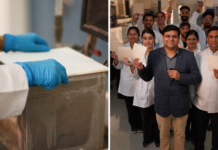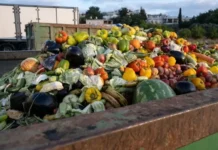
A ban has been put on single-use plastic, and it will be effective from 1 July. This decision has become a challenge for beverage makers like Maaza, Tropicana, Frooti, and others who provide plastic straws to help the customers puncture the juice boxes.
Any substitutes like using a paper straw or completely redesigning juice boxes to facilitate drinking of the juice without using a straw can force all these juice manufacturing companies to forgo the price point of Rs 10 a unit.
Many companies are finding it difficult to source paper straws, and they are forced to get them from nations like Finland, Malaysia, China, and Indonesia. Dabur India’s chief executive officer, Mohit Malhotra, said to the journalists of The Economic Times that there is no alternative to plastic straws in the country at present, and also it will lead to revenue loss.
The request to postpone plastic straw ban issue
In 2021, the Ministry of Environment had already notified about the ban on single-use plastic from July 2022. It covers flag sticks, candy sticks, wrappings of a cigarette pack, earbuds having plastic sticks, stirrers, PVC banners, wrapping covers, cutlery and cups, and plastic plates.
The manufacturer of Frooti, Parle Agro, has requested the Indian government to postpone the ban implementation by six months. It will allow the brands to establish the correct infrastructure required for sourcing paper straws from the nation itself (As per the report published in The Economic Times).
Beverage makers worrying about high transition cost
The food sector has moved smoothly to wooden cutlery, and customers have to bear the added cost. However, beverage makers are worried about the high transition cost they will need to bear.
The country makes and sells about 6 billion juice boxes having attached plastic straws each year. Pepsico, Coca-Cola, Parle Agro, and Dabur sell about 60% of the fruit juices in small packs as per estimation. The Rs 10 packs offer a thin margin to all the beverage producers but still allow them to connect with more customers. And at that price point, it will become difficult for those makers to find other alternatives for safeguarding the environment.
As per the data mentioned in The Economic Times, only about 1.3 million paper straws are manufactured in India currently, and the daily requirement is 6 million straws.
The dairy companies and pharma companies
Apart from these beverage manufacturers, dairy companies use carton boxes having straws to sell their products. And same is done by a few pharmaceutical companies that sell drinks like ORS.
The sector does not want to sell their juices without straws because, in the absence of straws, pins, nails, or pen tips will be used by customers for opening these boxes. It will lead to an unpleasant customer experience.
The manufacturers of plastic straws are waiting for the Indian government to extend the ban for at least a few months. But it is expected that the ban will come to effect from July onwards.
Rajesh Domadiya, a proprietor of Aditya Plastic Industries, said to The Economic Times that more than 1000 products are made of single-use plastic. Plastic cutlery and straws are just a tiny portion of it, and plastic straws’ share in the environment is very low. So, in any manner, the ban will not come of any help to the environment.
IndiFoodBev — authentic, impactful and influential
An English-language food and beverage processing and packaging industry B2B platform in print and web, IndiFoodBev is in its third year of publication. It is said that the Indian food and beverage industries represent approximately US$ 900 billion in revenues which implies more than 20% of the country’s GDP. Eliminating the wastage on the farmside can help to deliver more protein to a higher number of the population apart from generating sizable exports. The savings in soil, seeds, water, fertilizer, energy and ultimately food and nutrition could be the most immense contribution that country is poised to make to the moderation of climate change.
To improve your marketing and grow sales to the food and beverage processing and packaging industry, talk to us. Our research and consulting company IppStar [www.ippstar.org] can assess your potential and addressable markets in light of the competition. We can discuss marketing, communication, and sales strategies for market entry and growth.
Suppliers and service providers with a strategy and budget for targeted marketing can discuss using our hybrid print, web, video, and social media channels to create brand recognition linked to market relevance. Our technical writers are ready to meet you and your customers for content.
The second largest producer of fruit and vegetables in the world is continuously expanding processing capacities and delivery systems with appropriate innovative technologies. We cover product and consumer trends, nutrition, processing, research, equipment and packaging from farm to thali. Get our 2025 media kit and recalibrate your role in this dynamic market. Enhance your visibility and relevance to existing markets and turn potential customers into conversations. Ask for a sample copy of our bi-monthly in print or our weekly IndiFoodBev eZine each Wednesday.
For editorial info@ippgroup.in — for advertisement ads1@ippgroup.in and for subscriptions subscription@ippgroup.in
Naresh Khanna – 10 February 2025
Subscribe Now











